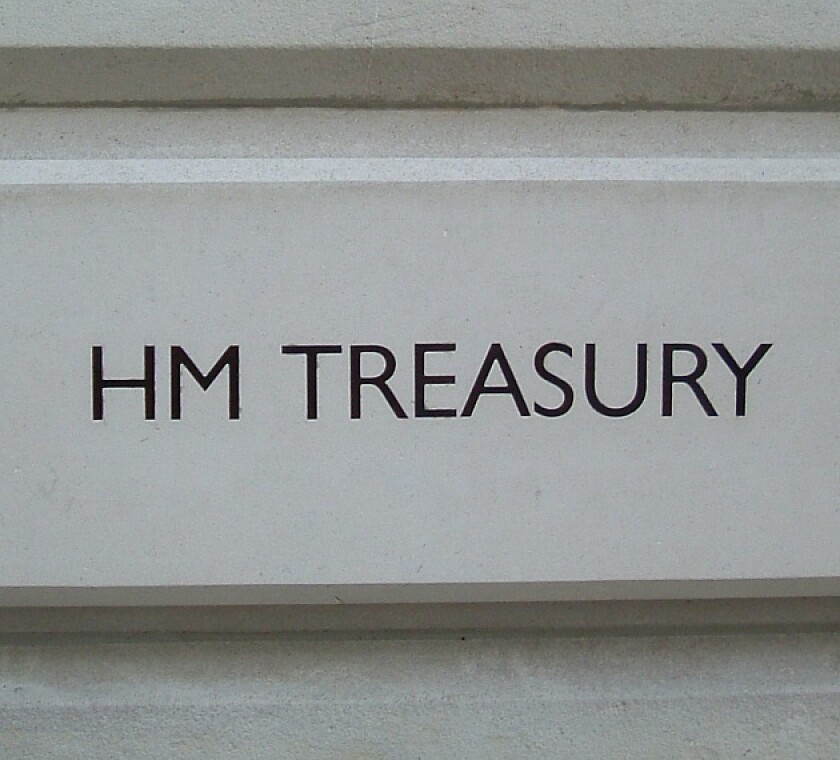CBI Director General Tony Danker has given a speech criticising the UK’s economic strategy. He claimed the country was moving into a “vicious cycle” of high taxes and low growth. However, he also used the speech to promote a tax proposal to prevent this.
As part of a five-point economic plan, the CBI is calling for a permanent 100% investment deduction for capital spending to boost investment. This would apply from March 2023, when the Treasury’s 130% ‘super-deduction’ ends.
The £25 billion ($34 billion) super-deduction was designed to boost the economy as the UK weathers the COVID-19 pandemic. The super-deduction allows companies to cut their tax bill by £0.25 for every £1 they invest, ensuring that the UK capital allowances regime is still among the most competitive globally.
“The super-deduction was a super-exception to normal incremental thinking. It was the boldness we need. Now, the 2023 end date is just too soon for most investment cycles,” Danker told the audience at CBI head office.
“So not only does it need extending; it needs to represent a totally new way of thinking about business investment,” he stressed.
Danker criticised the Conservative government for lacking “ambition”. “Everything the government is currently trying to get growth going merely achieves a new normal of low growth,” he argued.
“Now is not a time to low-ball our ambitions, to settle for a new normal of low growth,” said Danker.
The CBI has intervened at a time when the Conservative government is wracked by scandals over parties reportedly held during lockdown. This may mean the government is more likely to consider dramatic changes in tax policy.
Top headlines
This week ITR continued its Global Tax 50 series going through the most important figures in global tax policy. Reporter Alice Jones interviewed Piet Battiau, who oversees OECD work on consumption taxes, on the most important issues in indirect tax coming up in 2022.
Meanwhile, Leanna Reeves profiled Kristin Smith, who heads the Blockchain Association, on cryptocurrencies and tax. There is plenty more to come next week.
At the same time, the Indian government has presented a plan for taxing cryptocurrency transactions and the UAE has announced its plan for a corporate tax regime. Tax policy stands still for no one.
India’s 'growth-oriented' budget tackles cryptocurrency tax questions
India's 2022 budget sets out proposals to reform the taxation of digital assets such as cryptocurrencies and non-fungible tokens (NFTs). Gains from the transfer of a digital asset will be taxed at 30% along with a withholding tax of 1% above a monetary threshold.
There will be no deduction allowed and those incurring a loss during the transaction will also not be eligible for set-off against another income.
“Even in case of ‘gift of virtual digital asset’, the recipient will be subjected to taxes,” explained Rakesh Nangia, chairman at Nangia Andersen India.
The rule, coming into effect on July 1 could yet create an uneven playing field for investors in digital assets.
“This is something which is going to be a biggest disadvantage for people who have done crypto investments because the tax rate that they have specified as capital gains is 30%,” said Shreyash Shah, counsel at the Bombay High Court.
“The general tax rate for capital gains in India was a maximum of 10 to 15%. on long term capital gains and short-term capital gains was 20%,” said Shah.
“Putting the highest rate of tax that is 30% is going to cause a little bit of criticism from the investors in virtual digital assets,” he added.
UAE introduces corporate tax starting at 9%
The incoming federal corporate tax regime is part of the UAE government’s plan to follow international best practices and minimise the compliance burden on large businesses. However, the UAE’s incoming 9% rate is below the OECD’s global minimum 15% tax rate.
“This shouldn’t really come as a surprise to anyone anymore,” said Howard Hull, international tax advisor at Al-Futtaim Group in UAE.
“It’s been a long time in the making and I do not think it is directly related to the OECD global minimum tax even though the timing aligns broadly,” added Hull.
The MOF announced it will also enforce the 15% global minimum tax rate for large multinational enterprises (MNEs) with group revenue of more than €750 million ($860 million) that file a country-by-country report.
The global minimum tax rate has put pressure on many Gulf Cooperation Council (GCC) countries to broaden their tax bases to protect against tax outflows. Such countries have moved to adopt VAT to increase tax revenue, but corporate tax may be the next step.
“The announcement implicates large multinationals so they will be taxed at a higher rate, but it remains to be seen how this will be implemented from a policy perspective,” said Alex Law, international tax partner at Deloitte MENA.
Next week in ITR
ITR will be running an interview with Pascal Saint-Amans, director of the Centre for Tax Policy and Administration at the OECD, as part of its Global Tax 50 series. The Q&A focuses on the OECD’s achievements in 2021 and what taxpayers can expect this year.
Readers can also expect a look at the end of Libor and the implications for transfer pricing worldwide. All future inter-company loans will need to be pegged to different rates. This is a historic shift in global finance, because Libor underpins contracts worth $400 trillion worldwide.
Don’t miss out on the key developments. Sign up for a free trial to ITR.













